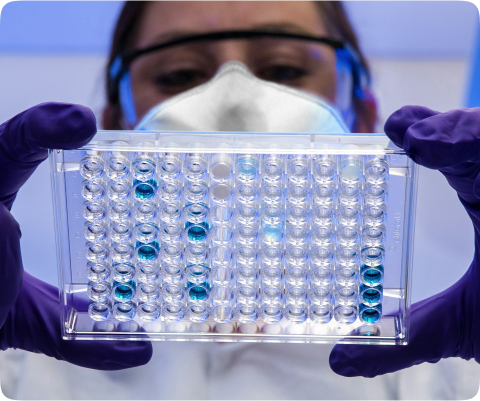Book this Test



GeneTech pioneered genetic testing in India in 1998 and has the most comprehensive range of tests using technologies like Next Generation Sequencing (NGS), Sanger Sequencing, MLPA, Cyto Microarray, SNP arrays, qPCR, PCR, Cytogenetics, FISH, Chemiluminescence, and others.
GeneTech pioneered genetic testing in India in 1998 and has the most comprehensive range of tests using technologies like Next Generation Sequencing (NGS), Sanger Sequencing, MLPA, Cyto Microarray, SNP arrays, qPCR, PCR, Cytogenetics, FISH, Chemiluminescence, and others.
GeneTech pioneered genetic testing in India in 1998 and has the most comprehensive range of tests using technologies like Next Generation Sequencing (NGS), Sanger Sequencing, MLPA, Cyto Microarray, SNP arrays, qPCR, PCR, Cytogenetics, FISH, Chemiluminescence, and others.
GeneTech pioneered genetic testing in India in 1998 and has the most comprehensive range of tests using technologies like Next Generation Sequencing (NGS), Sanger Sequencing, MLPA, Cyto Microarray, SNP arrays, qPCR, PCR, Cytogenetics, FISH, Chemiluminescence, and others.
Unlock insights into your health, ancestry, or future risks with our advanced genetic testing. Backed by cutting-edge science and expert guidance, Genetech helps you make informed decisions—personalized to your DNA.


360 degree coverage of all genetic conditions associated with female infertility, premature ovarian insufficiency, poor response to controlled ovarian stimulation, poor oocyte quality, fertillization failure, oocute maturation defects, implantation failure, failed IUI, IVF, ICSI, recurrent pregnancy losses. More than 500 genes sequenced and analyed. ART implications, preventive management, pharmacogenomic implications are provided to facilitate patient specific individualised stimulation and treatment. Research shows improvement in IVF sucess rate based on individualised treatment based on GeneFeminaTM results

Genetic testing is a process of testing genes and DNA to identify mutations or defects in the genes. These mutations can cause more than 3000 genetic disorders.
A genetic test is the ultimate diagnostic test. Once the disease-causing mutation is identified, prenatal diagnosis can be offered for all family members at risk to prevent genetic disorders. Some genetic tests identify a predisposition to cancer or other late-onset diseases so that preventive measures can be taken.
Genetic tests are either screening or diagnostic. Genetic screening tests will test if there is an elevated risk of a genetic disorder whereas diagnostic tests identify the defect with >99% accuracy. Genetic disorders can be identified at the chromosomal level or DNA level depending on the size of the defect involved. Cytogenetics (Karyotyping) is the study of chromosomes and Molecular genetics (Mutation analysis) is the study of DNA.
Not all genetic disorders are hereditary. Genetic disorders occurring in Somatic cells (cells other than Sperm or egg cells) are not hereditary. These genetic mutations are random events and cannot be passed to the next generation.



